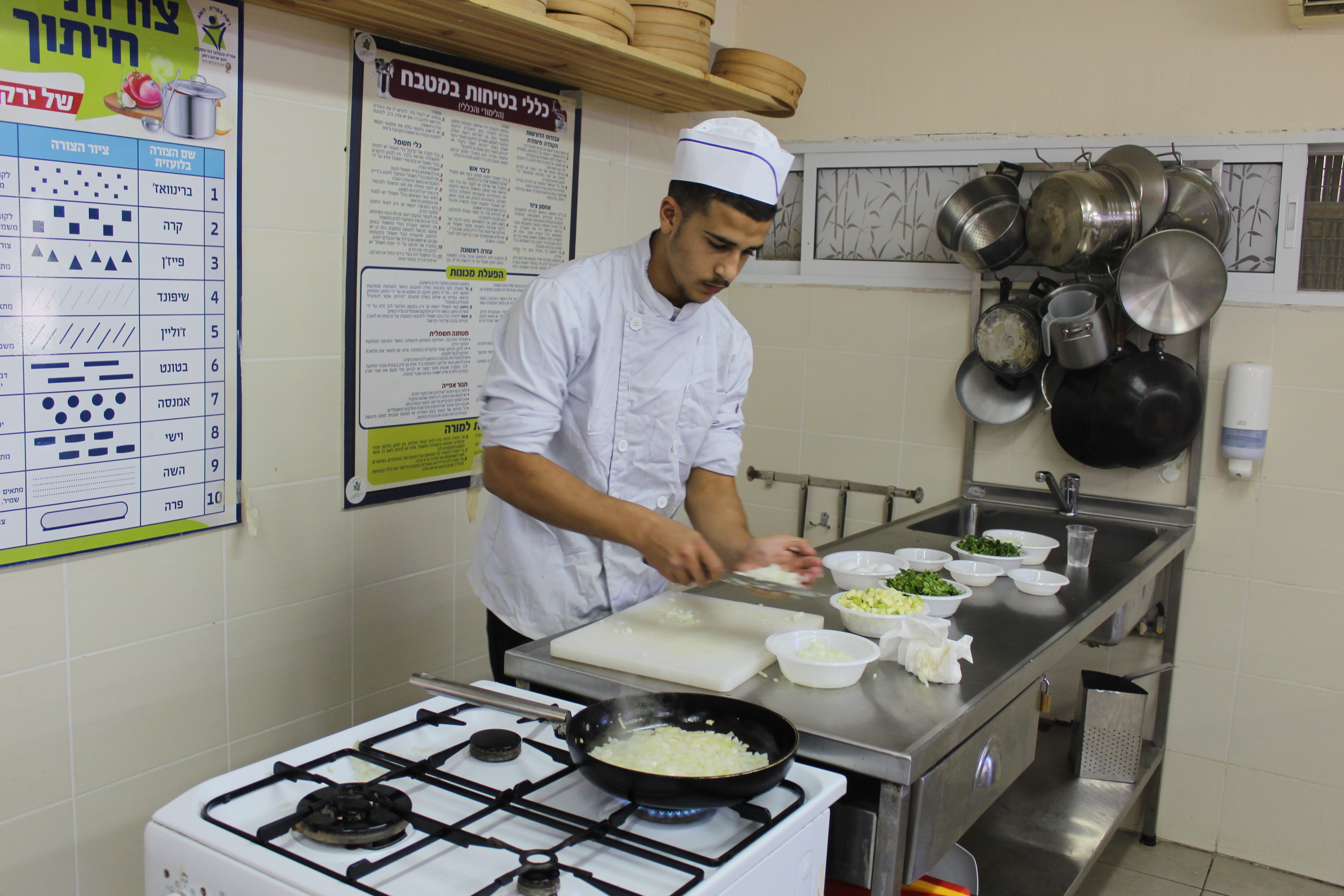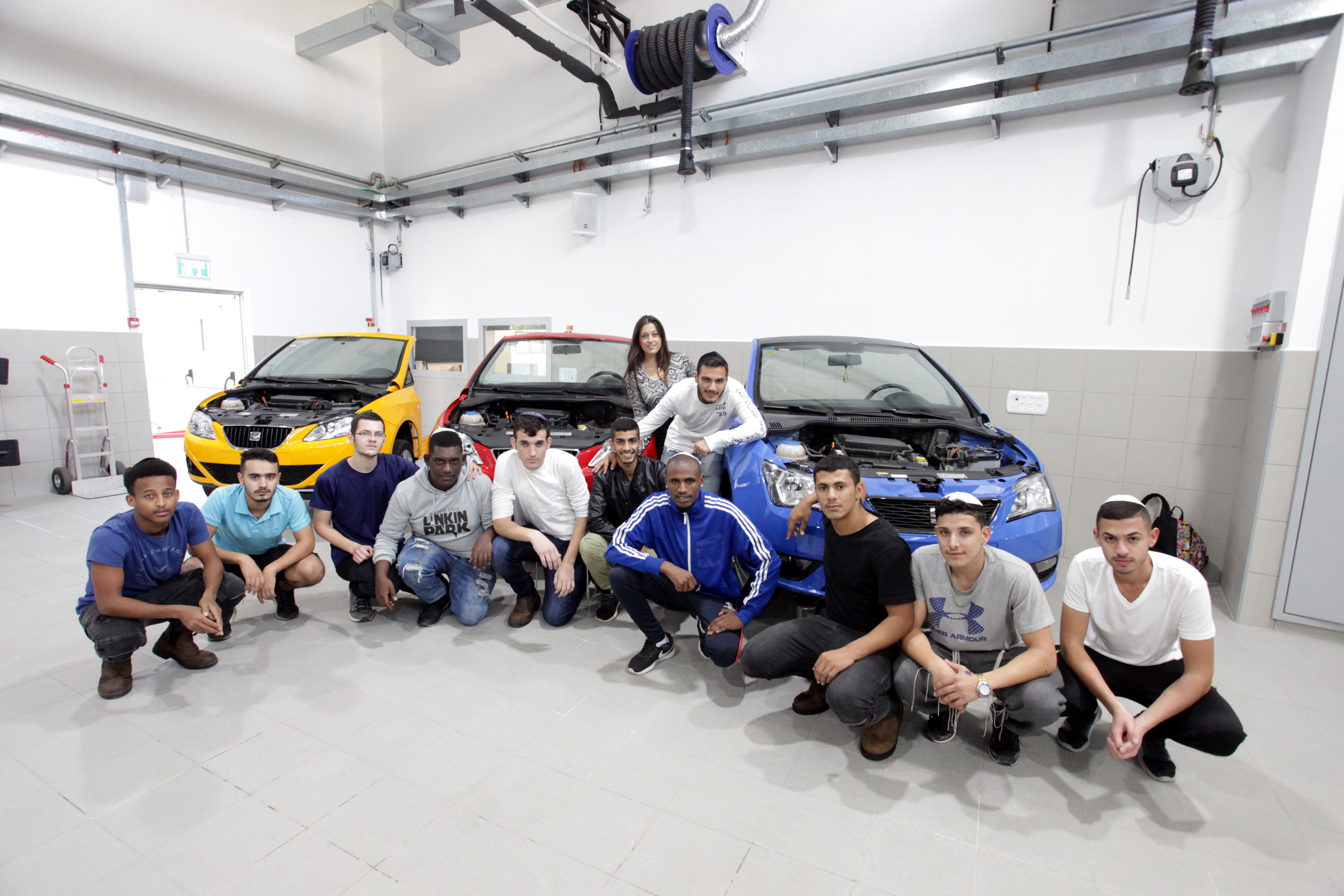First founded before Israel’s statehood, AMIT has become a major provider of vocational training, with ten centers across Israel.
Most students were born and raised on the country’s social and economic margins and didn’t flourish in more traditional academic settings.
“Students generally come to us after they’ve been expelled from other schools,” explained Motti Arbel, director of AMIT’s national vocational program.
At AMIT’s vocational centers, students learn a specific skill in tracks like tourism, industrial management, agriculture, system engineering, graphic design, photography, electrical, cosmetology, advanced transportation, IT, administration, culinary arts, and carpentry.


There are vocational schools in Jerusalem, Beersheva, Or Akiva, Ra’anana, Ashdod, Ramle, and Petach Tikva. Their mission is to provide career paths for students, and the promise of a meaningful life.
“AMIT has never been scared to help children on Israel’s periphery,” declared Arbel. “If it weren’t for these schools, so many of these young people would end up on the street, trapped in the vicious cycle of poverty into which they were born. But we are fighting for them, and we will not give up until they succeed.”
Evelyn Silver Kraut, whose family dedicated the Elaine Silver Technological High School in her mother’s memory, visits the school regularly, amazed at the staff’s ability to connect to students. “It’s unbelievable the lengths that the teachers go to for their students,” she said. “It’s easy to see that the belief teachers have in their students really contributes to their success.” Kraut and her husband, Larry, dedicated the school with her father, Dr. Walter Silver, z”l, and family including Morris and Sharon Silver, Ruth Cohen, Dassie and Marvin Bienenfeld, and Jinny and Jerry (z"l) Pinsky.
Kraut and her family chose to dedicate the school because one of the early vocational tracks it offered was fashion, and Elaine Silver z”l helped produce an annual fashion show to benefit students. When Kraut’s niece, Chana Cohen Nussbaum, z”l, died from breast cancer, the family dedicated an art studio at the school in her memory.
“We feel like supporting AMIT students is a natural extension of the values we hold near and dear,” said Kraut, who still hosts an annual shiur with proceeds benefitting the Elaine Silver Technological High School.
As the director of the vocational school network, Arbel spends much of his time working with staff and students on weekly visits to the different campuses.
Donors visit, too, like Barbara Nordlicht. She and her late husband Jules, z”l, made a monumental gift in 2008 to name the AMIT Nordlicht Religious Technological High School.
“My husband and I could have supported any venture, but we wanted to make a difference for children from less fortunate backgrounds with more uncertain futures,” said Nordlicht. “AMIT has done fantastic things, and on every visit, we would hear from students how much the school means to them. We would see the fabulous teachers, who really have all the kids’ success in mind.”
Debbie Moed’s family has been tied to AMIT for generations. "From the time it was Mizrachi Women, AMIT's mission of building a strong state through educating its children has resonated with my family," said Moed.
“My parents instilled in us, early on, the importance of education,” said Moed. “They were huge proponents of vocational training, believing that it could empower children with the opportunities and confidence needed to strive and achieve more than they ever thought possible.”
In 2018 the Gloria and Henry I. Zeisel and Family Junior College was dedicated at by Moed’s family: Gloria Zeisel, Cheryl and Abe (a"h) Kramer, Elliot and Mary Zeisel, Howard Zeisel, and Moed’s husband, Sam.
The family chose to dedicate this school where the signature vocational track is its automotive mechanics, since Henry Zeisel, the family's patriarch, was a machine tools dealer. “We felt it really tied into our family’s values,” said Moed.


Students who live at and attend high school in AMIT's Kfar Blatt Youth Village come from difficult backgrounds. Many end up studying at the Zeisel vocational school and junior college. Armed with the advanced diagnostic tools they learned at the school, they draft into the IDF with sought-after skills, many placed in officer track positions.
Moed points to the arc of Moshe Uziel, the Zeisel school’s principal, who grew up in the AMIT system and worked hard with AMIT's support to get to his current position in life. Moshe served as an officer in the IDF, went on to achieve an advanced university degree, and is now a successful professional.
"When parents are unable to nurture their children’s dreams, AMIT steps in to fill that critical role,” said Moed. “AMIT helps these children actualize goals and gives them a future they never knew existed.”
For information on AMIT and to donate go to www.amitchildren.org
This article was written in cooperation with AMIT
